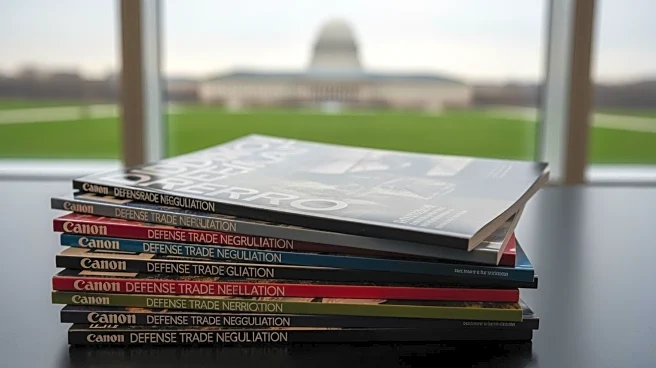What's Happening?
Defense trade publications, including Military Times and Defense News, have publicly rejected new media restrictions imposed by the Pentagon. The restrictions limit journalists' access to unclassified
areas within the Pentagon and require reporters to sign a document acknowledging a vague policy that appears to contravene the First Amendment. The policy threatens to penalize reporters for asking legitimate questions and could harm news organizations for factual reporting. The defense trade media has been a critical source of information on Defense Department programs and strategies, and the new restrictions have raised concerns about transparency and press freedom.
Why It's Important?
The Pentagon's new media restrictions have significant implications for press freedom and transparency in military reporting. By limiting journalists' access and imposing punitive measures, the policy could hinder the public's ability to receive accurate and timely information about defense matters. The rejection of the policy by major defense publications highlights the importance of maintaining open communication channels between the media and the government. The situation underscores ongoing tensions between the need for security and the principles of free press, which are vital for democratic accountability.
Beyond the Headlines
The media restrictions at the Pentagon may have broader implications for how government agencies interact with the press. The policy could set a precedent for other departments, potentially leading to increased control over information dissemination. This development raises ethical concerns about the balance between national security and the public's right to know. The defense trade media's stance against the policy reflects a commitment to journalistic integrity and the protection of press freedoms, which are essential for informed public discourse.











